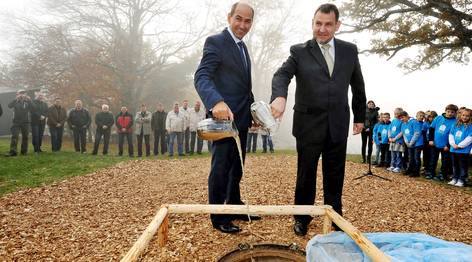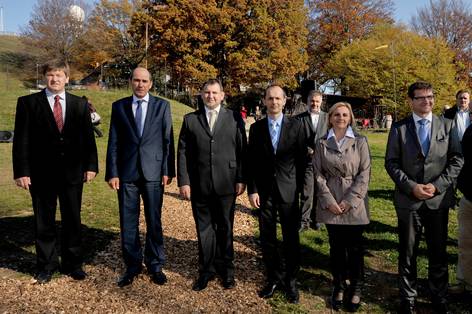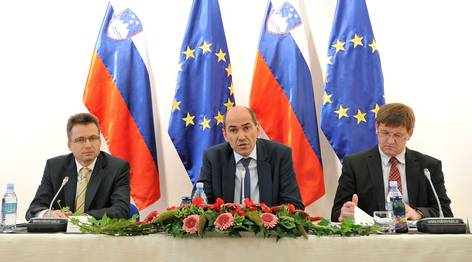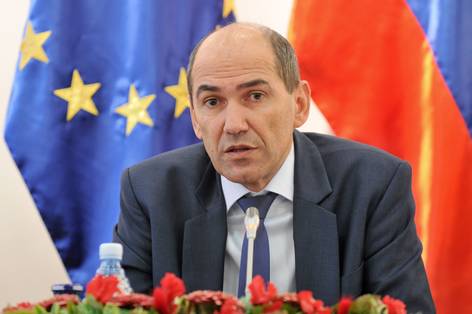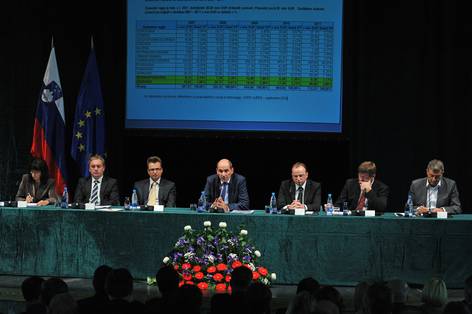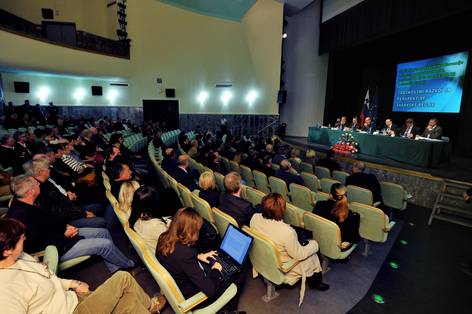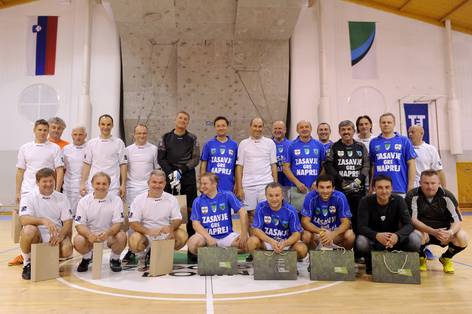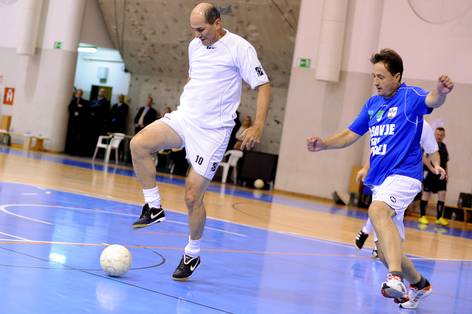NEWS
Prime Minister Janez Janša on the second day of his visit to Zasavje and Posavje regions: “A smarter use of means will yield better results.”
The Prime Minister of the Republic of Slovenia, Janez Janša, today continued the fifth government visit to Zasavje and Posavje. In the morning the Government met at a working session in Brežice and discussed the situation in both regions, in particular the importance of eliminating administrative barriers hindering economic development, and solutions for certain concrete projects in the area. The Prime Minister made it clear that no region has been spared by the crisis and that due to the Government’s austerity measures state aid will also be reduced. Therefore, the available funds will have to be used more wisely in order to make investments more effective. Regardless of the current situation, the Government decided to continue with its visits to the regions as one of its priorities. "We do not solve regional problems from our offices; we come to the field to see the real situation by ourselves. This is the only way to get a real picture and to find the right solutions to difficulties diagnosed," stressed the Prime Minister.
He particularly highlighted the model cases of the regions' successful businesses which do not ask for state subsidies or grants, as they succeeded to develop "on their own and make smart investments which create new jobs and promote development in the region." In addition to the limited state aid, the EU cohesion funds will be available in the present and the next financial perspective but suitable programmes must be prepared in time in order to optimise the drawing of these funds.
Posavje and Zasavje regions have particularly in common the energy industry, and the Government devoted extensive time to address concrete issues in this area. The closure of the Trbovlje coal mine, the project of hydro power plants on the river Sava, unresolved issues concerning the thermal power plant Trbovlje, the third development axis and other pressing matters are being urgently dealt with by the competent ministries. Nevertheless, the Prime Minister asked the people of Zasavje and Posavje to keep in mind that we must all endeavour – together and now – to stop the "free fall" in which Slovenia has found itself, as “growth may only begin when we stop falling”.
Statistically, Zasavje and Posavje differ in several elements, such as economic growth, unemployment, and state aid indicators (general data on the two regions are available at our website www.kpv.gov.si); whereby Posavje is the region less affected by the crisis. At the morning meeting, the Prime Minister and his team discussed the reasons for the present situation; that is in Zasavje also the result of underdeveloped infrastructure. Better road connections made Posavje more attractive to businesses. "This will facilitate the Government’s decisions on future investments, which will be adopted on the basis of understanding the reasons for stay or even regression after 2008," continued the Prime Minister.
The Prime Minister, together with Franc Bogovič, the Minister of Agriculture and the Environment, and Srečko Ocvirk, the Mayor of Sevnica, attended the inauguration of the natural sewage treatment facility in Lisca nad Sevnico, which is an example of low-energy and sustainable development in the field of wastewater treatment. The afternoon was, as usual, devoted to meetings with development actors in the region. The Prime Minister participated, with a part of his ministerial team, in the meeting entitled Sustainable development and perspectives of Zasavje region, organised to provide a direct touch with unresolved issues, but also to offer the possibility for propositions and good ideas born in the region to be heard. The Government will address all issues in their relative context. The Prime Minister stressed that he has been acquainted with a series of viable local projects which will need state aid, and continued by saying that he firmly believed that visits such as the current one were of utmost importance because they enabled direct communication and solving of certain matters which will, already before the next visit, show positive results.
Prime Minister Janez Janša also gave an interview for the local television station ETV. The visit was closed with a traditional friendly football match between the Government team and the team of Posavje and Zasavje regions.




